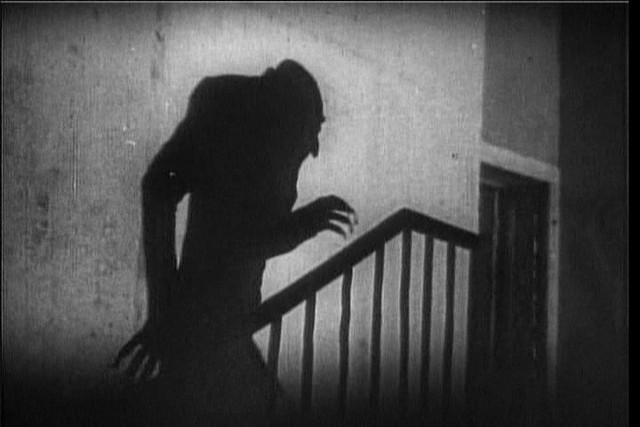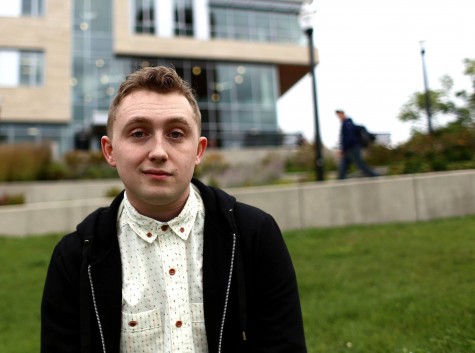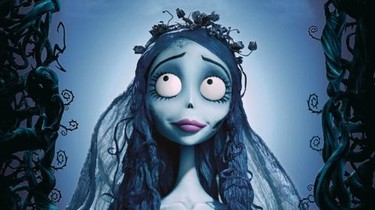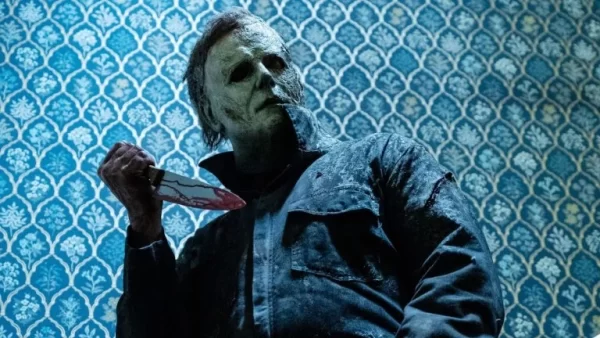Afraid on purpose: Why we love horror movies
The back-lit poster for the latest slasher flick is just outside the theater, with “Now playing” drawn in bold, bright letters. Dozens have gathered in not-uncomfortable chairs with their overpriced popcorns and candies. The stick of the floor makes their shoes echo like rain boots on linoleum.
You sit behind a young couple — a little to the side, so you can put your feet up on one of the reclining chairs. They lean against the armrest between them, and the boy stretches to reach his date’s far shoulder. They look into each other’s eyes and smile as the lights turn low. He pulls her close and tight and, for a moment, she feels safe.
But only for a moment.
The sound of wind softly whistles as the credits slowly scroll. The sun sets on leafless trees as your journey begins.
The horror film is the pinnacle of entertainment. It has to be — why else would we put ourselves through 90-plus minutes of fear and anguish? We see torture, death and despair, and we walk away with satisfaction and a woken heart.
But what’s the appeal in being scared?
For starters, we aren’t really scared. We know it’s all fake, that Jack Nicholson doesn’t really want to dismember Shelley Duvall with a hatchet. We detach ourselves from the footage, and this distance puts our minds at ease.
We watch horror films because we know exactly how we’re going to feel. Often, we know exactly what’s going to happen. Ignored souls seek vengeance on some quaint townsfolk; specialists are hired to ward off evil spirits; college kids go to a cabin in the woods, get lost, split up, and all but one or two die in ridiculous fashion.
Wash, rinse, repeat.
It’s not about the story, but how the story is told.
There is a shadow in the background as the ceaseless hum of string instruments surrounds you. The dark-haired actress looks offscreen, and the shadow darts just as she averts her gaze. She walks toward the house when the lights begin to flicker. The music hastens. She reaches for the door knob, the crescendo peaks and she jumps inside. Her back is pressed against the door and a shadow fills the window to her right.
The music slows. You lower your feet, and they stick to the ground. The couple in front adjust in their embrace. Dozens of not-uncomfortable faces stare forward in silence.
This is entertainment.
Horror is a lot like comedy, every scare a punchline. It is an art of composing those moments that we don’t see coming. But how do they keep coming up with those moments — how have we not seen it all before?
The genius of the genre is its deception. Audiences become adjusted to traditional scare tactics, and filmmakers have to find new ways to get a reaction.
We’ve all seen the jump scare. Everything seems dandy, then a grotesque image jumps out from nowhere, the orchestra flails just long enough to remind your heart it’s beating. It’s a gimmick, but it works; we get caught off guard because our expectations are deceived.
Sharp piano notes and subdued orchestral beats tell an audience to be afraid. But not all audiences want to be told how to feel. A proper silence forces the audience to project their own meaning into the scene, and our minds often linger on what’s most unsettling.
The psychological horror film exists to scare an audience through this emotional involvement. It’s not enough watching Freddy Krueger murder people in their sleep; we want to be involved in their personalized horror. We want to watch as Rosemary Woodhouse slowly loses her sanity, or as Clarice Starling’s deepest insecurities are exposed by Hannibal Lecter.
The last thing we want to happen to ourselves is exactly what we want to happen on screen.
Horror is a genre built on great moments — from “I can imagine exactly how that would feel” to “I can’t believe somebody wrote that” to “I think I’m going to be sick.”
The lights in the theater go bright once more. An orchestra of floor-stuck shoes steps gently over spilt popcorn and candy. The boy keeps his arm around his date, and they slowly make their way to the exit.
“That was terrifying,” she says.
“I know, right?”
“I can’t wait for the next one.”
“Me neither.”
Email Nicholas Hull at [email protected], or follow him on Twitter @nhullus.







